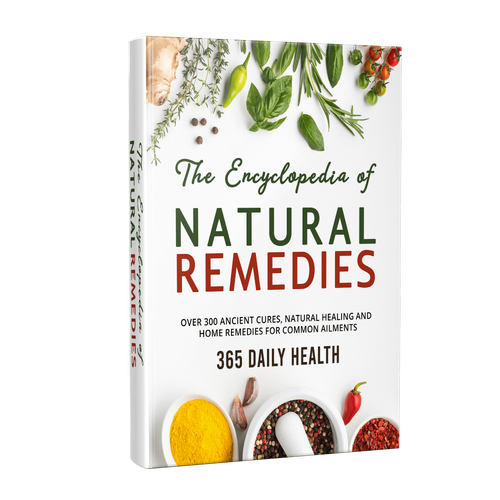Nature’s Pharmacy: Discover 20 Herbal Plants and Their Uses
Herbal plants have played a vital role in human health and wellness for centuries. From ancient civilizations to modern holistic practices, these natural wonders continue to provide remedies that heal and nourish. In this article, we’ll explore **20 herbal plants and their uses**, uncovering their potential benefits and applications. Let’s delve into the world of herbal medicine and discover how these plants can enrich our lives.
If you would like to learn more about how to make natural remedies then.
The Encyclopedia of Natural Remedies is a great place to learn more.
1. Basil: The Versatile Flavour Enhancer
Basil is not just a culinary delight; it boasts numerous health benefits. Rich in essential oils, basil possesses antibacterial properties that can fight infections. Moreover, its anti-inflammatory qualities help alleviate conditions like arthritis.
In addition to its medicinal uses, basil can enhance digestion. Drinking basil tea or adding fresh leaves to your meals can improve gastrointestinal health. Its aromatic flavour makes it a favourite in dishes worldwide, particularly in Mediterranean cuisine.
2. Lavender: A Calming Companion
Lavender is renowned for its calming effects. The soothing scent of lavender oil is a popular remedy for anxiety and insomnia. Research has shown that inhaling lavender can lower stress levels and promote restful sleep.
Beyond relaxation, lavender can also aid in skin care. Its antiseptic properties make it effective in treating minor burns and insect bites. You can infuse lavender in oils or creams for a natural way to enhance your skincare routine.
3. Peppermint: The Digestive Dynamo
Peppermint is more than just a refreshing flavour. Its menthol content offers significant digestive benefits. Consuming peppermint tea can alleviate symptoms of indigestion, bloating, and nausea.
Moreover, peppermint oil is an effective remedy for headaches. Massaging diluted oil on your temples can provide quick relief. Its cooling sensation can ease tension, making it a favourite among those seeking natural remedies.
4. Echinacea: The Immune Booster
Echinacea is often hailed as a powerhouse for the immune system. Many people turn to this herb at the onset of colds or flu. Studies suggest that echinacea can shorten the duration of illness and enhance immune function.
Using echinacea supplements or tea can be a proactive approach to maintaining health. However, it’s essential to consult with a healthcare provider to determine the right dosage and form for your needs.
5. Ginger: The Anti-Inflammatory Hero
Ginger is a kitchen staple with remarkable health benefits. Its active compound, gingerol, has potent anti-inflammatory and antioxidant properties. This makes ginger an excellent choice for managing pain, particularly related to arthritis.
In addition, ginger is known for its ability to soothe digestive issues. Drinking ginger tea can alleviate nausea, making it a go-to remedy for morning sickness and motion sickness. Its versatility makes it a must-have in every herbal collection.
6. Rosemary: The Memory Enhancer
Rosemary is not just a fragrant herb; it is also linked to improved memory and concentration. Studies indicate that inhaling rosemary can enhance cognitive performance and alertness.
Beyond mental clarity, rosemary possesses antioxidant properties. It can help protect the body from oxidative stress, which is crucial for overall health. Adding fresh rosemary to your meals can boost flavour while providing nutritional benefits.
7. Chamomile: The Gentle Sleep Aid
Chamomile is famous for its calming effects, making it a popular choice for those seeking restful sleep. The tea made from chamomile flowers can ease anxiety and promote relaxation.
Moreover, chamomile has digestive benefits. It can relieve symptoms of indigestion and bloating. Regular consumption of chamomile tea can support overall digestive health and wellness.
8. Turmeric: The Golden Healer
Turmeric, with its vibrant yellow hue, is often called a superfood. Curcumin, the active ingredient, is a powerful anti-inflammatory and antioxidant. This makes turmeric a popular remedy for various ailments, including arthritis and digestive issues.
Incorporating turmeric into your diet can be as simple as adding it to soups or smoothies. Its health benefits are vast, and ongoing research continues to unveil its potential.
9. Aloe Vera: The Skin Saviour
Aloe vera is widely known for its soothing properties. The gel extracted from its leaves can treat burns, cuts, and skin irritations. Its moisturizing effects make it a popular ingredient in skincare products.
Beyond skin health, aloe vera can also support digestive health. Consuming aloe vera juice may help soothe the gastrointestinal tract and promote regularity. Its dual benefits make it a favourite among natural health enthusiasts.
Nutritional Values Table
| Herb | Key Nutritional Benefits |
|—————|———————————————-|
| Basil | Antioxidants, vitamins A, C, K |
| Lavender | Antiseptic properties, antioxidants |
| Peppermint | Antioxidants, digestive enzymes |
| Echinacea | Immune-boosting compounds |
| Ginger | Anti-inflammatory, digestive aids |
| Rosemary | Antioxidants, cognitive enhancers |
| Chamomile | Calming effects, digestive benefits |
| Turmeric | Anti-inflammatory, antioxidant |
| Aloe Vera | Skin soothing, digestive support |
10. Thyme: The Antimicrobial Powerhouse
Thyme is a culinary herb that also offers remarkable health benefits. Its essential oil contains compounds that have strong antimicrobial properties. This makes thyme an excellent choice for fighting infections.
In addition to its antimicrobial effects, thyme can improve respiratory health. Drinking thyme tea or inhaling its steam can relieve coughs and congestion. Its multifaceted uses make thyme a valuable addition to any herbal collection.
11. Oregano: The Antioxidant Champion
Oregano is more than a pizza topping; it is a rich source of antioxidants. These compounds help protect the body from free radicals, reducing the risk of chronic diseases.
Furthermore, oregano oil is known for its antibacterial properties. It can combat harmful bacteria, making it an effective natural remedy. Incorporating oregano into your diet can enhance both flavour and health.
12. Cinnamon: The Blood Sugar Regulator
Cinnamon is a beloved spice with significant health benefits. Studies suggest that cinnamon can help regulate blood sugar levels, making it a valuable addition to the diet of those with diabetes.
Additionally, cinnamon has anti-inflammatory properties. Adding a sprinkle to your morning oatmeal or smoothie can provide a tasty way to boost your health. Its sweet flavour makes it a delightful addition to various dishes.
13. Sage: The Hormonal Balancer
Sage is often overlooked but holds numerous health benefits. It is known for its ability to balance hormones, particularly in women experiencing menopause. Sage tea can alleviate hot flashes and promote overall hormonal health.
Moreover, sage has antimicrobial properties, making it effective against oral bacteria. Using sage in cooking or as a tea can support oral health and wellness. Its diverse uses make sage a worthy herb to explore.
14. Fennel: The Digestive Aid
Fennel is a unique herb with a licorice flavour. It has been traditionally used to aid digestion. Fennel seeds can relieve bloating and gas, making them a popular choice after meals.
Additionally, fennel may help reduce menstrual discomfort. Drinking fennel tea can provide relief from cramps and promote overall reproductive health. Its calming properties make fennel a valuable herbal ally.
15. St. John’s Wort: The Mood Stabilizer
St. John’s Wort is widely known for its mood-enhancing effects. It has been used for centuries to combat depression and anxiety. Studies show it can be as effective as some prescription medications for mild to moderate depression.
However, it’s crucial to consult a healthcare professional before using St. John’s Wort, as it can interact with other medications. Its potential benefits highlight the importance of nature in mental health.
16. Nettle: The Nutrient Powerhouse
Nettle is a nutrient-dense herb packed with vitamins and minerals. It is rich in iron, making it beneficial for those with anaemia. Additionally, nettle contains anti-inflammatory properties that can aid in joint pain relief.
Using nettle in teas or soups can help boost overall nutrition. Its versatility and health benefits make it an essential herb for any herbal enthusiast.
17. Gotu Kola: The Skin and Brain Tonic
Gotu Kola is an ancient herb used for centuries in traditional medicine. It is known for its ability to enhance cognitive function and improve skin health. Studies suggest that it can promote wound healing and improve circulation.
Incorporating Gotu Kola into your routine can support both mental clarity and skin vitality. Its dual benefits make it a fantastic addition to your herbal toolkit.
18. Milk Thistle: The Liver Protector
Milk thistle is famous for its liver-protective properties. Its active ingredient, silymarin, supports liver function and detoxification. Many people use milk thistle to promote liver health, especially after consuming alcohol.
Additionally, milk thistle has antioxidant properties that help protect against cellular damage. Including it in your health regimen can support overall wellness and vitality.
19. Ashwagandha: The Stress Reliever
Ashwagandha is a powerful adaptogen known for its stress-relieving properties. It helps the body adapt to stress and promotes a sense of calm. Many people turn to ashwagandha to manage anxiety and improve overall well-being.
Incorporating ashwagandha supplements or powder into your diet can enhance your body’s resilience. Its potential benefits make it a go-to herb for those seeking balance in their lives.
20. Ginseng: The Energy Booster
Ginseng is a revered herb known for its energy-boosting effects. It enhances physical and mental performance, making it popular among athletes and busy professionals. Studies suggest that ginseng can improve endurance and reduce fatigue.
Furthermore, ginseng supports immune function. Regular consumption can bolster your body’s defenses, making it an excellent choice for those looking to maintain health during flu season.
Conclusion
: Embrace the Power of Herbal Plants
The world of herbal plants is rich and diverse, offering a plethora of benefits for our health and well-being. From the calming effects of lavender to the immune-boosting powers of echinacea, these **20 herbal plants and their uses** provide a natural approach to health care.
By incorporating these herbs into your daily routine, you can enhance your overall wellness and reconnect with nature’s bounty. As you explore these plants, remember to consult with healthcare professionals, especially if you have existing health conditions. Embrace the power of herbal plants and discover the profound impact they can have on your life.
Sources
The Encyclopedia of Natural Remedies
The
Encyclopedia of Natural Remedies is not an ordinary natural remedies
eBook.
In this 181-page eBook, it brings your natural
health conscious community/readers with over 300 ancient cures,
natural healing and home remedies for over 60 common ailments by any
lay person. So, if your audience struggles with any of the 60 common
ailments, this eBook will equip them with knowledge required to
adequately assess and manage certain simple ailments that would
otherwise be expensive and time consuming to treat in specialised
health care.
Get your copy NOW!


